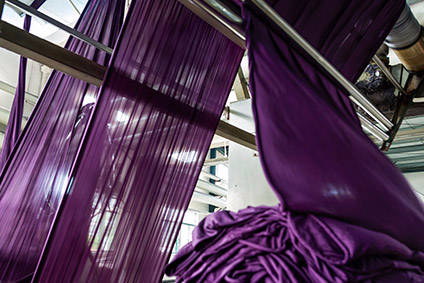
A new project is underway to improve water management and energy sustainability at textile and apparel factories on Vietnam’s Mekong and Dong Nai deltas.
The initiative of the World Wide Fund For Nature (WWF) and the Vietnam Textile and Apparel Association (VITAS), it will run until 2020, and focuses on the area around Ho Chi Minh City where more than half of Vietnam’s apparel factories are located.

Discover B2B Marketing That Performs
Combine business intelligence and editorial excellence to reach engaged professionals across 36 leading media platforms.
Called ‘Greening Vietnam’s textile sector through improving water management and energy sustainability,’ it will promote better river basin governance and contribute to water quality improvement and sustainable energy use.
The project is part of a wider initiative on ‘Driving impact reduction through the textiles value chain’ sponsored by HSBC to support the green textile industry in China, Bangladesh, India and Vietnam.
The textile and apparel industry is one of Vietnam’s most economically important sectors. It contributes 15% of total export value and has a steady annual growth rate of 12% between 2010 and 2017. With 6,000 factories nationwide and employing 3m people, the sector is not only economically but socially important for Vietnam.
However, the sector can also cause environmental impacts. Intensive water extraction, use and discharge of wastewater and high energy consumption for water heating and steam generation mean that the sector can have significant impacts on water resources and greenhouse gas emissions.

US Tariffs are shifting - will you react or anticipate?
Don’t let policy changes catch you off guard. Stay proactive with real-time data and expert analysis.
By GlobalDataAs the industry continues to expand, changes in practice will be required to reduce impacts and adapt to changing conditions; for example, the United Nations predicts that water supplies will suffer a 40% shortage globally by 2030.
Although one of the largest exporters of apparel goods in the world, the industry “is more famous for low cost production with limited environmental standards,” says Vu Duc Giang, chairman of VITAS.
“With customers worldwide now more conscious about the environment, this is forcing a lot of global brands to change their operations to include higher environmental and social standards. If we do not change our practice now, Vietnam could lose its competitiveness. That is why this project is so important and timely.”
The main focus is to improve water and energy sustainability within the sector, thus reducing its impacts to the environment. Work will also be undertaken with textile and apparel manufacturers to encourage them to be more active river stewards, practice sustainable energy planning, and discuss collective actions to achieve long-term sustainable investments and development in the sector.
An important goal is influencing investors in the Vietnamese textile industry – many of whom are Chinese – to implement more sustainable practices.
HSBC has long been involved in supporting the conservation of the world’s water source through the HSBC Water Programme, an 8-year US$150m project that started in 2012.
The ‘Driving impact reduction through the textiles value chain’ belongs to pillar Sustainable Network and Entrepreneurs, one of three pillars under HSBC’s current sustainability strategy aiming at supporting the shift to sustainable global supply chains.
“As Vietnam is more and more integrated in the world through FTAs like CPTPP, EVFTA, bilateral free trade agreements, FDI inflows are forecasted to continue to be robust, and textile and garment, one of the top export industries, is the one that will benefit,” notes Pham Hong Hai, CEO of HSBC Vietnam.
“However, Vietnam’s enterprises are required to considerably raise their ethical and environmental standards to align with the world business’s community or lose out in global competition.”
For WWF, the partnership is a means “to achieve our wider goal of addressing river governance and energy sustainability, which are top global environmental concerns,” adds Marc Goichot from WWF-Greater Mekong.
“In the long run we want to see factories, industrial parks and other actors come together to take more proactive collective actions to address risks and impacts beyond their factory fences and more responsibly manage shared resource uses across-sectors.
“With more than 10 years of working with the textile industries of top exporting countries as Bangladesh, China, India and Pakistan, WWF believes that we can help Vietnam to create a big positive change for the sector.”
Key stakeholders in the project include international brands with suppliers in Vietnam, factories around the country, as well as stakeholders outside Vietnam such as the China National Textile and Apparel Council (CNTAC) and Lancang-Mekong Cooperation (LMC).





